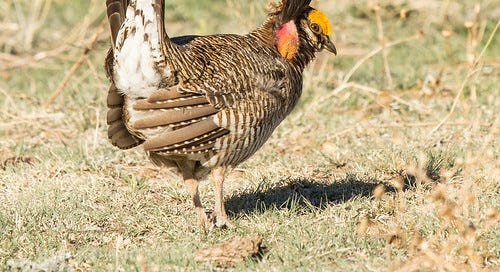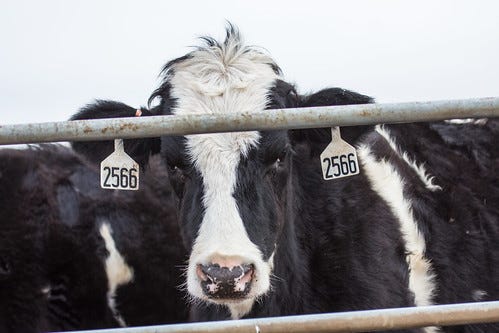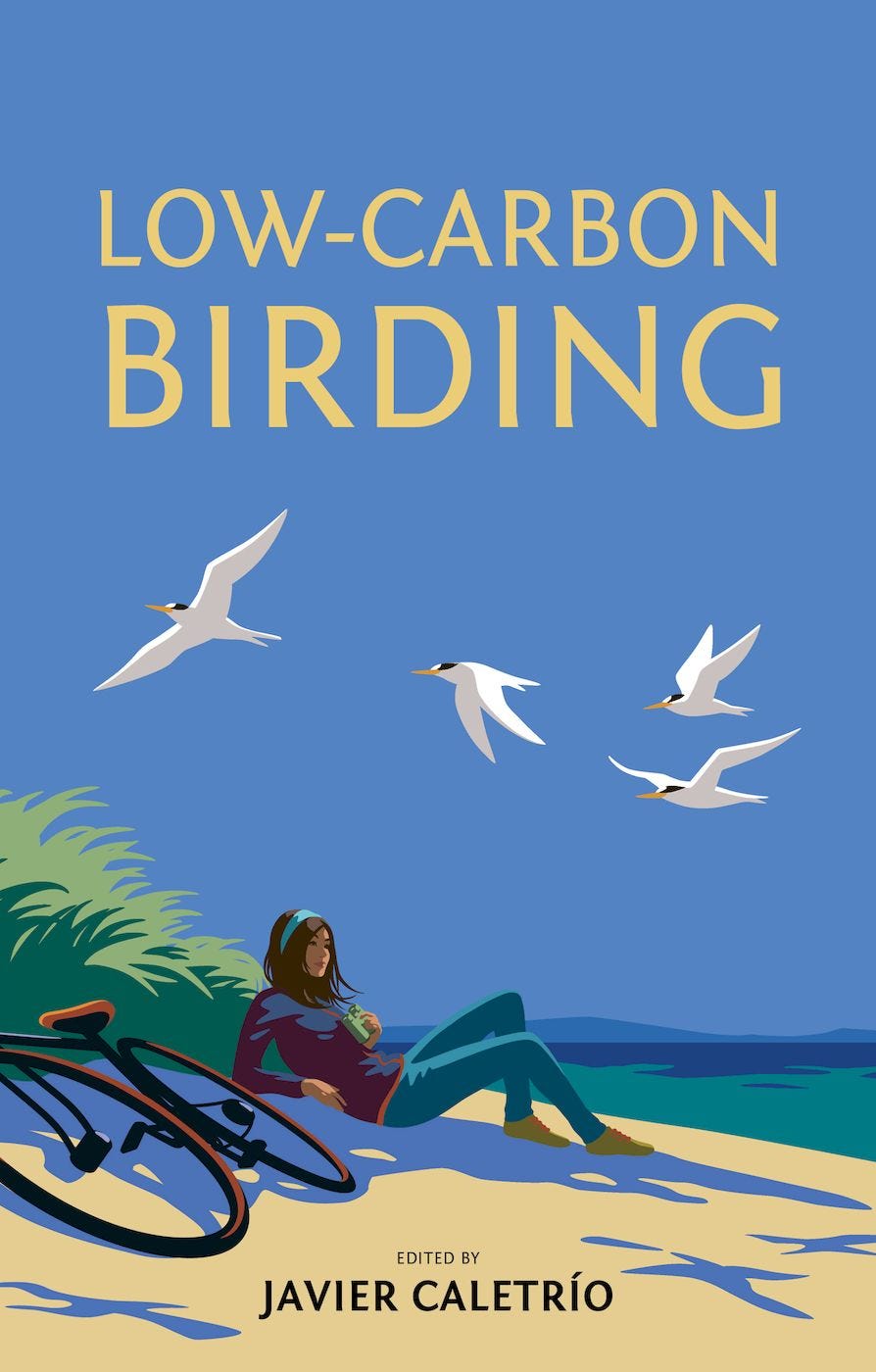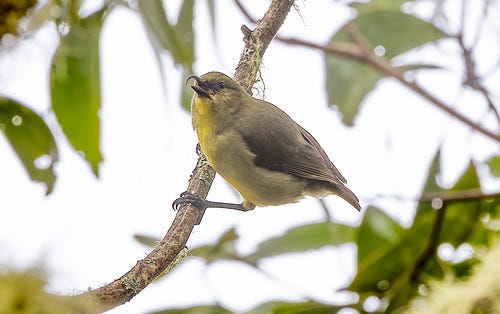(Listen to the radio version here.)
A little history and background
Back around the first Earth Day, in 1970 when I was a college freshman, I became aware of a whole panoply of environmental issues. My understanding of every one of them was superficial at best, but I wanted to do everything I could to protect wildlife and humans from air and water pollution, unnecessary pesticides, toxins leaching into groundwater, and global warming (which yes, we already knew about back in 1970). I hated the very thought of squandering all kinds of natural resources, especially non-renewables.
I set one of my life’s priorities to minimize my footprint on the natural world, and the more I’ve learned over the decades, the more committed to that I’ve become. For example, I already understood that our landfills were evidence of wasted natural resources and caused toxic runoff—as it turns out, garbage also contributes enormously to our carbon footprint. Landfills, the third-largest source of methane emissions following agriculture and oil and gas, account for 14 percent of our nation’s total methane emissions—and methane is more than 80 times more potent than carbon dioxide as a climate pollutant. (https://www.catf.us/2022/09/how-our-trash-contributes-to-climate-change/)
Methane produced by cattle, toxic runoff from feedlots, and a huge variety of other environmental impacts of beef production were a big part of why Russ and I never ate much beef, and one of the compelling reasons that I stopped eating beef altogether in 2013.
The first car we bought was a new 1971 Pinto. It cost $2000, which was more than we could comfortably afford, but it got way better gas mileage than anything we could buy used. Gas was cheap back then—we could often fill its 11-gallon tank for less than $3 even when we’d been running on empty. (I am not making that up.) Despite its cheapness, we hated wasting gas, so around campus and greater Lansing, we virtually always walked, rode our bikes, or took the bus, as we did while we lived in Madison, Wisconsin. We’ve driven hybrids since 2004; my 2018 Kia Niro averages between 55 and 60 mpg in warm weather, and between 40 and 50 in winter with the snow tires.
The house we bought when we moved to Duluth—the one we are still in 43 years later—was built around 1910. It needed a lot of work to make it more energy efficient, but we figured that was a better investment towards the environment than buying something newer or treating it as a “starter home.” It was close enough to Russ’s job that he could usually walk or bike, and walking distance to the post office, a neighborhood grocery store, and the elementary and junior high schools our kids would attend.
We both yearned to live out in the woods but couldn’t bear the thought of all the miles we’d have to drive per year compared to staying in town. We also took into account how energy-intensive it is per resident mile for counties and townships to keep country roads up here plowed compared to streets in neighborhoods like mine. If we lived outside the city, mail and package deliveries would also add to our carbon footprint. We try to buy locally, to minimize what we buy in the first place, and especially to limit our purchases of plastics and anything that’s been shipped from Asia knowing how much bunker fuel is burned to get it here, producing water and air pollution as well as adding to our carbon footprint. Some ships are starting to burn bunker fuel lower in sulfur than the traditional sludgy stuff, but long-distance shipping still adds mightily to our carbon footprint in ways that most people just don’t think about.
When we moved here in 1981, we quickly upgraded our house’s heating system from oil to a high-efficiency gas furnace, upgraded that once, and now have a heat pump. We also keep the place a little cooler in winter and warmer in summer than many people prefer. Several years ago, we replaced our tank-style water heater with an on-demand system. And we have a dozen solar panels on our roof. Russ used a very old fashioned push mower—powered entirely by his muscles—for decades, and when he finally succumbed and bought a power mower, he got one with a rechargeable battery. We still use regular old snow shovels.
Trip Guilt
We’re far from perfect, but we’ve done our level best to protect the environment throughout our adult lives. I still can’t honestly justify the carbon emissions I cause by driving at all, taking a hot shower, ordering anything from out of town, producing and posting my blog and podcast on my computer, watching TV, or just about anything else I do. I feel guilty about the energy- and resource-intensive MRIs and mammograms I’ve had, especially when I think about how, by lengthening my life at all, medical care has also extended the number of years I’ll be consuming so many resources.
And I obviously cannot begin to justify the carbon emissions when I travel anywhere by air. An excellent book that came out last year, Low-Carbon Birding, with contributions from 30 birders from newbies to professional ornithologists, discusses the ironies of chasing birds and how shifting to climate-friendlier approaches is wonderful on many levels. It was a great read, and I agree wholeheartedly with just about everything in it.
But at the same time, I’m thrilled that one birder, Peter Kaestner, just broke the 10,000 species mark—something that had long seemed an impossible achievement. (Currently there are 10,825 recognized bird species.) Kaestner is a retired American diplomat who, throughout his career, took advantage of necessary professional travel to start amassing a huge life list. Way back in 1986, he became the first person ever to see at least one member of every bird family in the world, putting him in the Guinness Book of World Records. In 1989, he discovered an antpitta species in Colombia that was new to science. And a year ago, not long before he turned 70, he beat the world record for the number of birds seen in the wild with about 9,800. The only record left to top was his own.
Many of my environmentalist friends celebrate space exploration without a second thought to its unfathomable carbon footprint. Most of us celebrate excellence when it comes to science, literature, and amateur sports. A lot of us will be riveted to the Olympics this year, hardly giving a thought to how much travel is involved in training and competing at that level. Non-renewable fuels are precious indeed, but I think using them for essential or deeply fulfilling reasons is not the same as squandering them, just as when a person of limited means buys a yearned-for, expensive item, cutting corners in other ways to afford it, we don’t say they’ve squandered their money.
I’ve never had the desire to bird competitively. When I did my Big Year in 2013, I limited myself to the Lower-48, mostly drove, and two of the four plane trips I took were to places I had speaking gigs at. It was still a huge expenditure of energy, but despite how fun it was, educating people about such vulnerable species as Greater and Lesser Prairie-Chickens, Greater and Gunnison’s Sage-Grouse, Burrowing Owls, California Condors, Golden-cheeked Warblers, and other disappearing treasures really was my primary goal.
The photos, sound recordings, and experiences I got that year have been critical to my work, just as experiencing and taking photos of Hawaiʻi ʻĀkepas, ʻAkiapolaʻaus, and other endangered American birds were my primary goals in visiting Hawaiʻi.
It’s ironic as well as guilt-inducing that my ability to do my work effectively bears such a heavy carbon cost, but that makes me try even harder to conserve energy on other fronts.
It’s ironic as well as guilt-inducing that my ability to do my work effectively bears such a heavy carbon cost, but that makes me try even harder to conserve energy on other fronts. Fortunately, I’m self-employed and earn so little money that I can’t afford to fly regularly anyway. When I do, I never complain about how crowded planes are—the more passengers are crammed in, the less fuel is burned per passenger mile.
Guilt Trips
I’m not the only one anxious about my air travel. Every time I mention traveling on my blog or podcast, I get at least one email chastising me for being so wasteful. Even as I’m happy that more and more people are concerned about natural resources and climate change, I’ve learned not to engage with strangers about my personal choices—I already feel guilty about traveling, and it’s crushing to realize how many people consider my life’s work worthless and even frivolous. One man told me his wife must fly for business, and yes, sometimes he accompanies her, but that’s a lot different from them just birdwatching. During my recent trip to Hawaiʻi, I got an email from one UK reader scolding that I should have taken a train to “one of the southern states or Mexico” if I “wanted a bit of sun.”
Ironically, the fact that someone from London is even aware of a birdwatcher from Duluth, Minnesota, suggests that I’m at least a little effective in reaching out to the public about birds, even if I failed in raising his awareness that the endangered Hawaiian birds are endemic species, found nowhere on planet Earth except Hawaiʻi. A trip to one of the southern states or Mexico would not get me anywhere near ʻIʻiwis or Palilas. As an American, I feel a responsibility for the well-being of American birds, including those of our 50th state, which is considered the “bird extinction capital of the world.” The only way I know how to help these disappearing treasures is to educate people about their plight.
I’m in no position to judge the carbon footprints of those who try to lay a guilt trip on me about mine. But I’m also not going to let them dictate my choices. My best may not be good enough for them, or even for me, but it really is the best I can do.













The concern you express for your carbon footprint is very impressive. I am sure your minimization efforts do not go unnoticed at least amongst folks how think similarly to you. Consider how may folks have no idea what a carbon footprint even is. Don't listen to those who criticize you, just be happy to know how much your education has helped people world-wide understand birds and how important they are. Peace!
Well we grow hundreds of acres of green stuffs and have some very good old carbon sinks and haven’t traveled for four years. Consider your adventures sufficiently credited. Our frustration for years has been a lack of a USA sponsored carbon exchange where we could bank our carbon credits inside our own country and get credit for our conservation efforts. Our country gets a lot of blame for creating carbon but no credit for our huge conservation efforts like our national forests and USDA conservation programs. So wash any guilt away. We’ve got you covered!